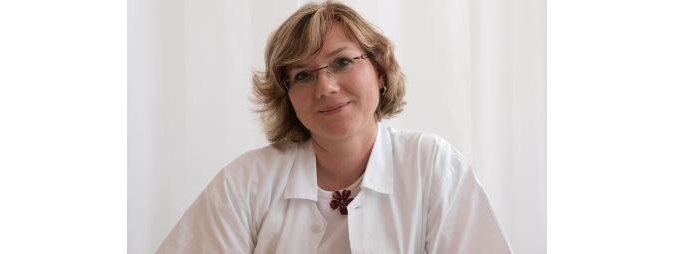PARTNER ARTICLE
Whether you have a chronic skin condition or just need a simple preventative check-up, you are in good hands in Prague says Dr. Daniela Vaňousová, a dermatologist at Canadian Medical Care. “Based on what I know, dermatological care tends to be more widely accessible in the Czech Republic than in other countries and possibly even better in our country as you will usually be seen for an acute skin problem at most offices the very same day you call which is not typical in Western countries.”
The most frequently occuring types of skin disorders that show up in the Czech Republic are acne, eczema, warts, a variety of rashes, nail diseases, particularly mycotic infections of the nails, and problem moles, says Dr. Vaňousová. Less common, though entirely treatable, are seborrhoic dermatitis, psoriasis, rosacea, and vitiligo. Dr. Vaňousová notes that, “Typical skin disorders like acne, eczema, and rashes are generally treated just as they would be in the US or UK with topical applications or systemic treatments (oral or injections) depending on the severity of the disease.”
If you previously suffered from and were treated for a particular dermatological condition in your home country, you can expect to receive similar medical treatment here in the Czech Republic. “Patients will mostly be given a medication that is similar in content if not the exact same drug, though the various meds may have different names,” Dr. Vaňousová says. For instance, if you are a women who struggles with acne you may be prescribed oral contraceptives, etc. just as you would abroad.
Dermatological patients in the Czech Republic may, however, have the opportunity to experience some different types of therapies that are not so common in the US and UK, ones that have more of a longstanding tradition in Central and Eastern Europe. For example, spa visits and balneotherapy—mineral, peat, or mud baths—for patients with eczema and psoriasis. You will also be able to take advantage of a unique aspect of Czech dermatology, says Dr. Vaňousová: the preparation of hand-blended creams and salves by a pharmacist.
“We had limited access to dermatological products before and shortly after the Velvet Revolution in 1989. During that time, dermatologists primarily treated their patients with creams made in pharmacies.” Today, doctors can choose between pharmaceutical applications and homemade preparations or supplement one with the other. But Dr. Vaňousová adds, “In some cases, the homemade creams actually prove better for a particular skin disorder, as you can precisely tailor the mix of substances to a given condition.”
Another advantage (if indeed dermatological afflications have advantages) of suffering from a skin condition in Europe is the proliferation of the so-called French pharmacy brands, over-the-counter creams such as A-Derma Exomega, Eucerin, and Ducray, that tend to be more readily available and less expensive here in the Czech Republic than in the US. Most dermatologists have free samples of these brands on hand; pharmacies sell them or will order them for you on demand. In the past, some over-the-counter products were covered by Czech insurance or given at a slight discount if prescribed by a dermatologist, though this has changed in recent years.

While the availability of dermatoligical consultations and care options may have a slight edge over Western countries, some challenges will exist for foreign dermatology patients in the Czech Republic. Certain types of prescriptions cannot be dispensed by dermatologists and can only be given at care centers that specialize in their adiministration. If you had a prescription for medications such as Enbrel or other biologics in your home country, for instance, you may experience some difficulties getting a prescription here. Due to the great expense of these types of medications, patients must meet certain criteria before they are prescribed them.
Even if you do not suffer from a severe skin condition, Dr. Vaňousová stresses the importance of regular visits to the dermatologist for the evaluation of any suspicious-looking moles or birthmarks. “Everyone should be regularly checked for their moles, how often depends on the number and type of nevi, or birthmarks, a person has as well as his risk factor which is determined by family and personal history.”
Dr. Vaňousová adds that, in general, the number of skin cancers, especially malignant melanoma—the most dangerous kind of tumor—is increasing and occuring in more and more young people. “This is why prevention is incredibly important,” she warns. “That means using sunscreens, self-monitoring of the skin and regular check-ups of one’s nevi as well as visiting the dermatologist any time you notice that a mole has changed in size, shape, or color.”
To be on ths safe side, it is important to have moles and/or skin tags evaluated by a dermatologist before their removal in a laser center, says Dr. Vaňousová. “Pigmented lesions should always be removed surgically and the pathological specimen should be examined by a pahologist, in order to rule out melanoma and other skin tumors.”
For first time visitors to a Czech dermatologist, you do not necessarily need any records from your home country, unless you have been treated for a chronic skin condition and you feel that previous medical information is important for the follow-up and any subsequent treatment to be conducted in the Czech Republic. What to expect at your first visit? The doctor will take your medical history, determine the reason for your visit, and should give you a full body evaluation. You do not normally need a referral unless your GP suggests you to go to a dermatologist and writes you one.
Some dermatology practices offer cosmetic procedures including vein removal and the removal of benign cafe-au-lait spots. Additional cosmetic procedures like the application of Botox, fillers, and rejuventaiton methods are available in the Czech Republic at substantially more affordable prices than in other countries, hence Prague’s popularity as a “medical tourism” destination. But, says Dr. Vaňousová, laser procedures are not typically covered by insurance though necessary surgical operations are.
Clearly, a range of top-notch treatments for a range of skincare concerns are readily available here in Prague.
Has that been your experience?
Related articles













 Reading time: 5 minutes
Reading time: 5 minutes 



















